Facebook is a established digital marketing channel and hosts millions of different businesses around the world. The social platform currently has the world’s largest user base and features a highly advanced advertising suite with tons of different features to help businesses find their customers among this massive crowd. There’s no argue on Facebook being a trusted place for almost any business to advertise; 7 million advertisers actively use the platform for promotion and this number is growing by the day.

But for any business owner looking to adopt Facebook in its marketing plan, there’s always the question of how much Facebook advertising costs especially with the ever-increasing competition between advertisers for user’s attention. We’ll try answering this question and explaining what actually determines you promotion costs on the platform and how you could keep down and get the most bang for the buck.
Why Facebook advertising?
We’ve reached a point where it’s really easy to answer this question. Facebook has been the #1 online social platform for as long as most of us could remember, and with having Instagram on its side, it simply provides the largest audience size you could possibly find anywhere on the Internet.
We’re looking at over three billion people users all around the world actively using Facebook for content, social interactions, news and events, shopping, etc. What gives Facebook an even bigger edge is its state-of-the-art advertising suite. The company has impressively harnessed the power of its gigantic user base for advertisers by accumulating enormous amounts of user data and developing advanced systems and algorithms to process and take advantage of this information.
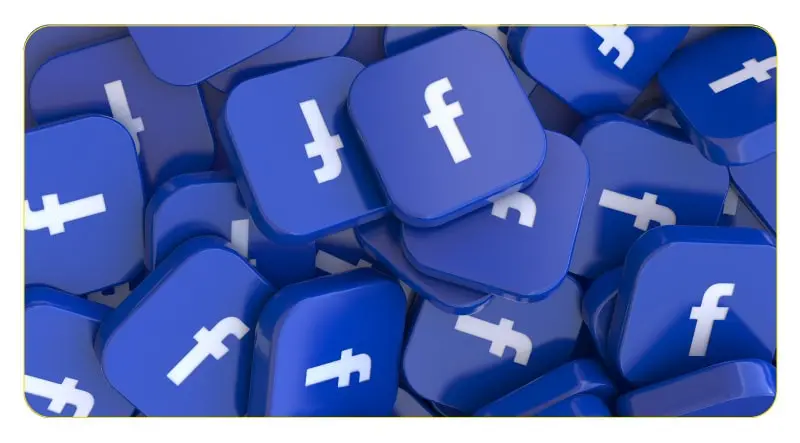
Facebook gives you an unparalleled control over almost every aspect of your advertising efforts. Hyper flexibility and accuracy in audience segmentation and targeting is among Facebook’s strongest advantages. You can get extensively broad or extremely granular with your target audience and categorize them based on hundreds of different factors and be confident that your ads will be shown to the right people with really small margins for error. Additionally, Facebook Ads is equipped with dozens of campaign creation and optimization tools and features to further streamline the process of advertising and remove guesswork from the job.
Simply put, Facebook gives you almost everything you need to find prospects among a giant crowd. The only thing remaining is how you use it, and that’s actually what greatly influences how much you’re going to pay for finding customers on the platform.
How much does Facebook advertising cost?
Advertising costs on Facebook is measured based on the bidding model, primarily how much advertisers are going to pay on average for every click (CPC) and for every 1000 impressions (CPM). For Facebook, these numbers are around $0.4 and $14.4 respectively.
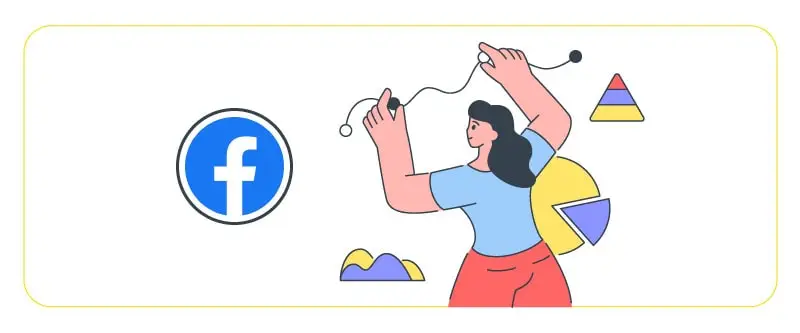
There are also other models, including cost-per-engagement which costs $0.12, and cost-per-lead which costs $19.7 on average. Remember that these are all average and several distinct factors could make your Facebook ad spend fluctuate higher and lower than these numbers. We’ll go through these factors, but first let’s talk about how Facebook’s ad auction system works.
Types of Facebook Advertising Costs
Cost Per Click (CPC)
Cost Per Click (CPC) is a popular pricing model used in Facebook advertising, where advertisers pay each time a user clicks on their ad. This model is particularly effective for campaigns focused on driving website traffic, engagement, or specific actions. Here’s how CPC works and its relevance to different ad types:
- Definition of CPC: CPC, or Cost Per Click, refers to the amount an advertiser pays for each click their ad receives. This means that you are charged only when users interact directly with your ad by clicking on it.
- Relating CPC to Different Ad Types: CPC is commonly used across various ad formats on Facebook, including image ads, video ads, carousel ads, and more. It allows advertisers to pay based on user engagement, making it suitable for campaigns aiming to generate clicks, website visits, sign-ups, or app installations.
- Advantages of Using CPC:
- Clear Cost Control: Advertisers have a direct control over the cost they pay for each click, helping manage budgets effectively.
- Performance Tracking: CPC allows for easy tracking of the effectiveness of ad campaigns through click-through rates (CTR) and conversion rates.
- High-Quality Traffic: Since advertisers pay only for clicks, CPC often attracts more engaged users who are genuinely interested in the product or service.
- Considerations When Using CPC:
- Keyword Selection: Effective choice of keywords and ad targeting is crucial to ensure relevant clicks.
- Ad Quality: Engaging and relevant ad content increases the likelihood of attracting clicks.
- Conversion Optimization: While CPC drives clicks, conversion-focused elements on landing pages play a role in achieving desired outcomes.
Cost Per Mille (CPM)
Cost Per Mille (CPM) is a pricing model where advertisers pay for every thousand impressions their ad receives. CPM is often used for campaigns aiming to build brand awareness and reach a large audience. Let’s delve into the specifics of CPM and its suitability for certain types of ad campaigns:
- Explanation of CPM: CPM stands for Cost Per Mille, where “mille” refers to a thousand. Advertisers are charged a fixed amount for every one thousand times their ad is displayed, regardless of whether users click on it or not.
- Suitability for Brand Awareness Campaigns: CPM is an ideal choice for brand-focused campaigns as it maximizes exposure and impressions. It’s particularly useful when the primary goal is to increase visibility and create a strong brand presence among the target audience.
- Pros of Using CPM for Ad Campaigns:
- Broad Reach: CPM helps ads reach a large audience and increase overall brand awareness.
- Predictable Costs: Advertisers can forecast expenses more accurately since they pay for impressions, regardless of clicks.
- Ad Creative Freedom: Focus can be on creative and engaging ad design without the sole emphasis on generating clicks.
- Cons of Using CPM:
- Click-Through Rates Vary: CPM might not directly guarantee clicks, making it essential to create compelling visuals to encourage user interaction.
- ROI Measurement: While CPM is effective for brand exposure, measuring direct ROI can be more challenging compared to CPC or CPA.
Cost Per Action (CPA)
Cost Per Action (CPA) is a pricing model in which advertisers pay based on specific actions, such as sign-ups, purchases, or form submissions. CPA is well-suited for conversion-focused campaigns where the ultimate goal is to drive meaningful user interactions. Here’s an overview of CPA and its relevance as a pricing model:
- Definition of CPA: CPA, or Cost Per Action, involves paying when a user completes a predefined action that aligns with the campaign objective. This could include actions like making a purchase, signing up for a newsletter, or downloading an app.
- Relevance for Conversion-Focused Campaigns: CPA is highly relevant for campaigns aimed at driving conversions and valuable user actions. Advertisers are charged only when users take a specific action, making it a performance-driven pricing model.
- Benefits of Using CPA as a Pricing Model:
- ROI-Focused: Advertisers can directly tie expenses to desired outcomes, making it easier to measure return on investment.
- Efficient Spending: CPA minimizes spending on users who don’t take desired actions, leading to more effective budget allocation.
- Campaign Optimization: By tracking and optimizing for specific actions, advertisers can refine their strategies for better results.
- Challenges Associated with CPA:
- Conversion Tracking: Proper tracking mechanisms are essential to accurately measure CPA and optimize campaigns.
- Higher Initial Barrier: CPA campaigns might require more planning and resources to set up compared to other models.
In conclusion, understanding the different types of Facebook advertising costs—CPC, CPM, and CPA—enables advertisers to choose the pricing model that aligns with their campaign goals, whether it’s driving clicks, building brand awareness, or achieving specific actions. Each model has its own advantages and considerations, and the choice depends on the nature of the campaign and the desired outcomes.
How do Facebook Ads auction work?
It’s crucial to get a full grasp on how Facebook handles its ad auctions to optimize Facebook Ads costs. Auctions are pretty common among major advertising platforms. In an ad auction, advertisers bid against each other for advertisement placements. The advertiser with the highest bids wins the auction and gets to show its ad to the target audience.
To help you better understand the concept, we skip the ad creation process where you prepare your ad creatives, target audience, scheduling, etc. Once your ads (or campaigns) are ready to be served, they will enter an auction for your selected placement automatically and multiple factors determine whether they’ll win or lose. The most important ones are your budget and bid.
- Budget: The overall amount you’re willing to spend on your campaign. There are two budget types on Facebook: Daily budget and Lifetime budget.
- Bid: How much you’re willing to spend on an ad placement. Bids could be set manually or by Facebook based on your budget and ad run-time.
You’ll never spend more money than the amount you’ve set for your budget. An important thing to know is that although the highest bidder wins the auction, it will always spend just a penny more than the second-highest bidder. For example, if your bid is set to $3 and the nearest competitor bid is $2.6, you win the auction but you’ll pay $2.7 for the placement.
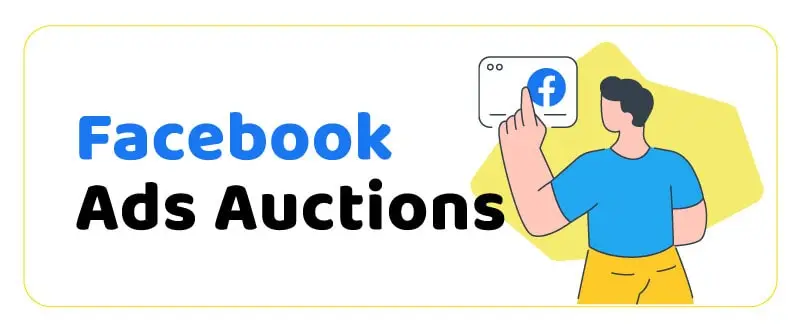
Price isn’t the only factor that determines the auction’s outcome. Otherwise, Facebook and Instagram would be filled with ads from businesses who beat other advertisers with large bids. In recent years, Facebook has heavily focused on bringing value to users and show them ads that they actually find relevant. To reach this goal, an ad’s total value is considered in auctions, which demonstrates how likely it is for your audience to find your ads relevant and interact with it. Here’s are the factors that determine your ad’s total value:
- Bid: Since this is an auction, the amount you’re willing to spend to secure the placement is a major factor. Two primary bidding strategies on Facebook are automatic bidding (known as Target Cost Bid Strategy), and manual bidding (AKA Lowest Cost Bid Strategy). In the automatic strategy, Facebook helps you achieve your business goal with the lowest cost per action possible by spending your budget efficiently. Manual bidding is only available for app installs, lead generation, and product catalog sale campaigns.
- Estimated action rates: Facebook estimates how many people will engage with your ad or convert from it. In other words, it’s the probability that showing your ads to users will lead to to your desired outcome.
- Ad quality: Facebook will determine the quality of your ad based on user feedback, and assessments of whether or not your ads have low-quality attributes like withholding information, engagement baits, irrelevant post-click landing page, etc.
What determines your Facebook ads costs
Aside from the three main determining factors in Facebook ad auctions, there are other important parameters and attributes that could influence the amount of money you’re going to pay for your ads to be served on Facebook:
- Objective: There are three main objectives for ad campaigns on Facebook: Awareness, consideration, and conversion. Each of these main objectives have different specific subcategories like brand awareness or engagement. These goals have different values that determine how much they will cost. Goals with higher values like conversions generate immediate revenue for the advertisers and consequently cost higher than goals like brand awareness.
- Target audience: The size of your target audience could vary greatly based on the geographic, demographic, interest, and behavior filters you set, and it impacts your advertising costs. Targeting a more specific audience costs you more, but increases your chances of achieving your selected goal. Targeting a broad audience may cost less, but could negatively impacts performance since you may attract low-value interactions.
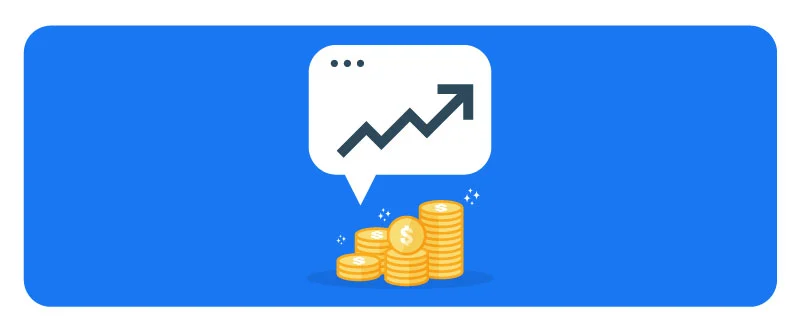
- Ad placement: Your ads can appear on many places across Facebook’s network which also includes Instagram and Facebook Audience Network. These placements consist of Instagram, Instagram Stories, Facebook newsfeed, Facebook right column, Messenger, and Audience Network. Each of them cost differently and you should select the one’s the better fit your business objective and budget.
- Quality: The quality of your ads is a very important factor that could help you win auctions even with lower bids than the highest-bidding competitor. If your ads score a high relevance and engagement score and get a good assessment from the Ad Relevance Diagnostics, you can reduce your Facebook advertising costs significantly. Following well-proven tactics for creating high-quality ads and following Facebook’s guidelines is a good start to ace this factor. A great practice is monitoring high performing ads from advertisers in your industry with a Facebook Ads spy tool and get inspiration from winning campaigns and latest trend in Facebook advertising.
Conclusion
Facebook advertising seems like a no-brainer for businesses of almost any size and industry looking to reach their potential customers with relative ease and reasonable costs. The platform is highly advanced in terms of advertising tools and features and boasts a massive user base that no other social app could compete with. Price always remains a hot discussion topic among Facebook advertisers and even though it’s been slowly increasing over the years, it’s still one of the most reasonable methods of digital marketing.
FAQs
How much does Facebook advertising cost?
On average, Facebook Ads cost $0.3 to $0.5 per click and $14.4 per 1000 impressions.
How much does a Facebook ad cost per day?
The amount of your daily ad spend on Facebook depends on the daily budget limit you set for your campaigns and it will never exceed the amount you enter.
Why are Facebook ads so expensive?
Facebook advertising is actually among the most reasonably priced digital marketing channels. It’s important to know that several variables influence your ad spend and it’s crucial to optimize your campaigns to get the best results from your budget.
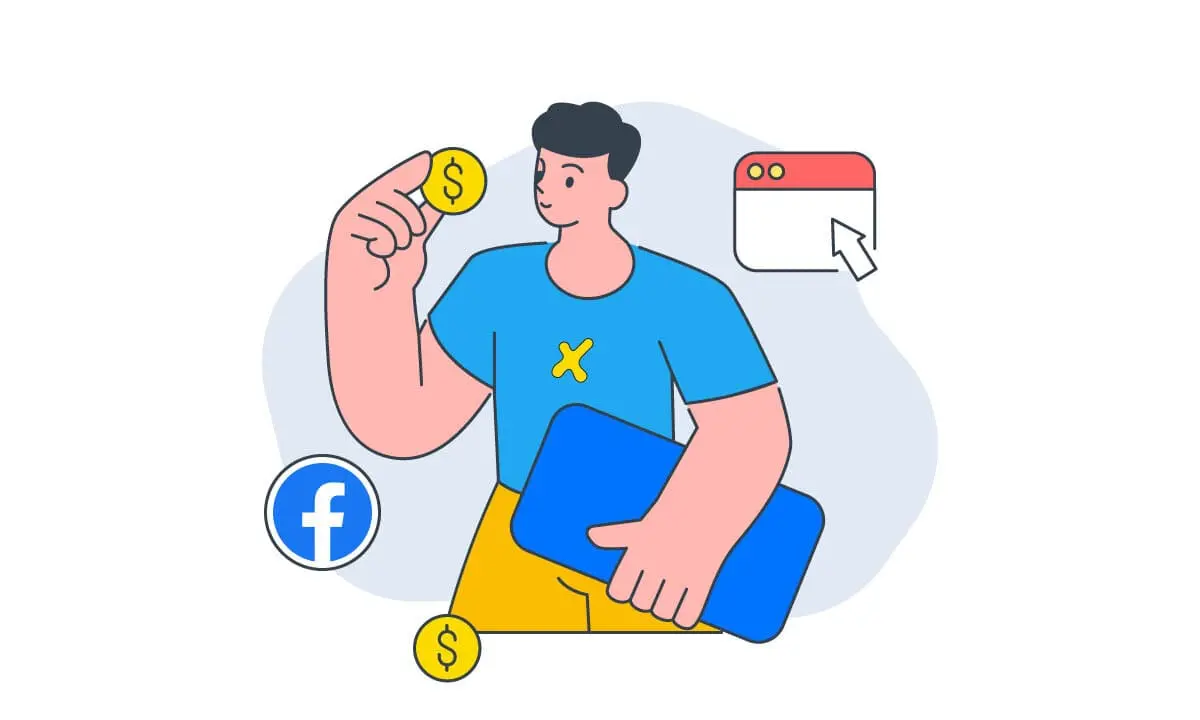

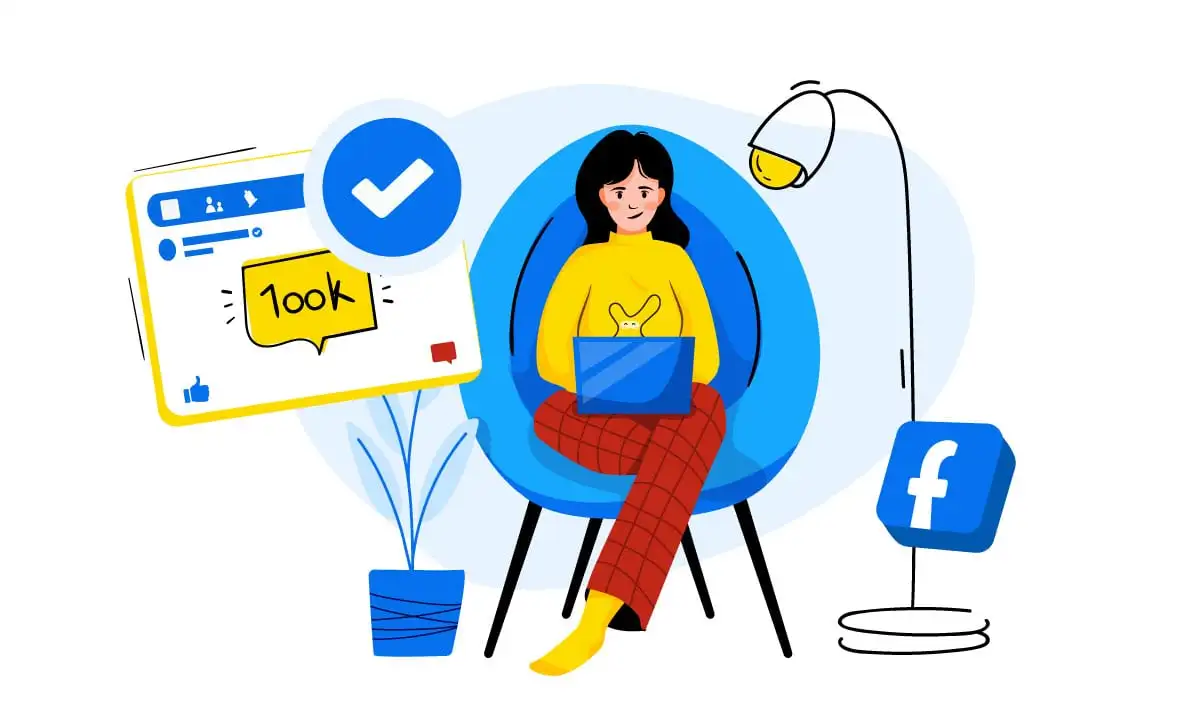
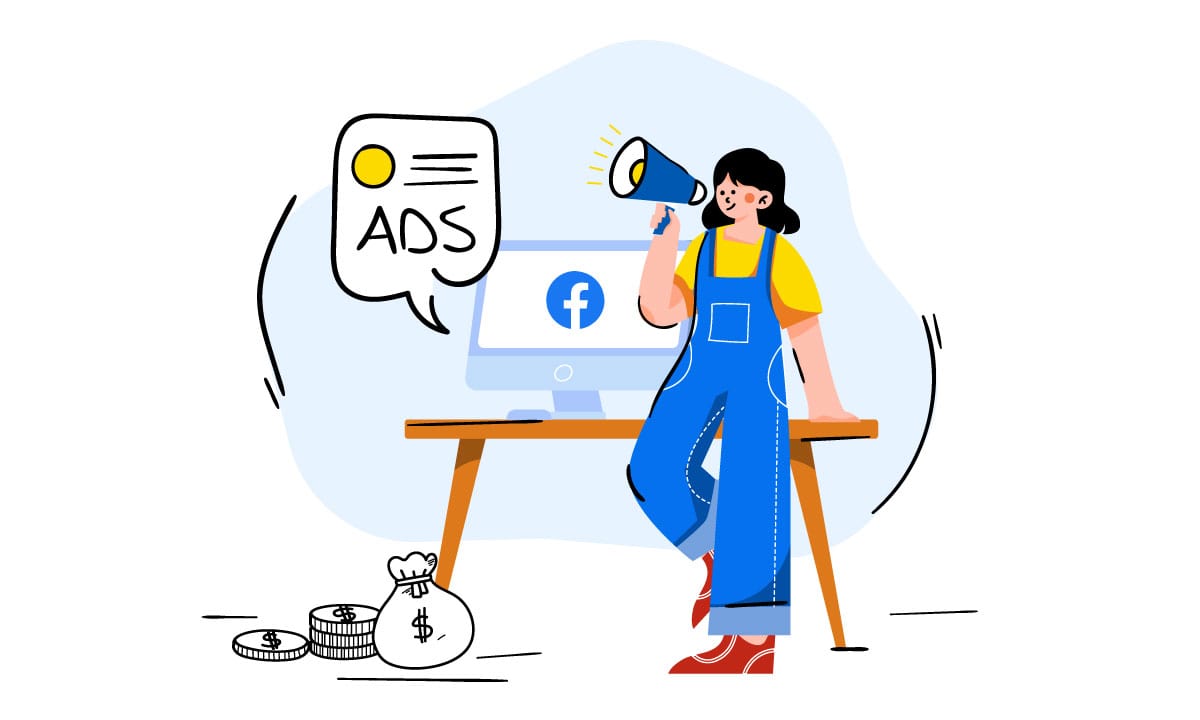



 Facebook Ads Spy Tool
Facebook Ads Spy Tool TikTok Ads Spy Tool
TikTok Ads Spy Tool
5 thoughts on “What Facebook Advertising Costs in 2024: A Complete Guide”
Many thanks. It was a long-winded process that required lots of patience.
That’s why I admire your persistence and professionalism when closing this deal.
Hi there
You are welcome! Thanks for leaving your feedback.
Do payment methods need to be stored on Facebook?
If they do, can I find out how the security is managed?
Can I get a letter of attestation confirming the storage is PCI compliant?
Is the information tokenized and vaulted, or encrypted and stored in some other manner?
Is there an option to delete the card information after a purchase has been made?
May I have the Facebook data breach security and notification policy?
Is there an alternative payment option, i.e., not storing card and cardholder information on Facebook?
Hi Steve
Unfortunately, we’re not qualified to answer your questions. We suggest you contact Meta Business Help Center. (https://www.facebook.com/business/help)
I want to express my sincere gratitude for your recommendation of the Facebook Ads Spy Tool
This tool has been an invaluable asset in our marketing efforts, allowing us to gain valuable insights and inspiration from competitor ad campaigns. Its ability to uncover strategies, creative approaches, and target audience preferences has greatly enhanced our own advertising strategies. I am truly appreciative of your suggestion and the positive impact it has had on our marketing success. Thank you for sharing this powerful resource with us.